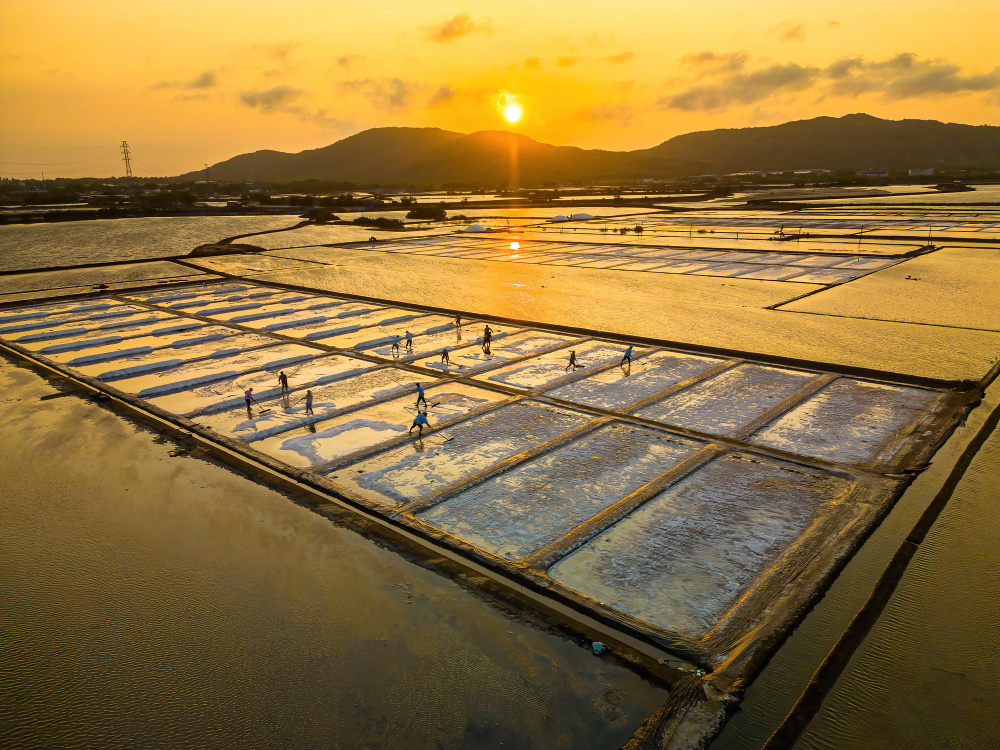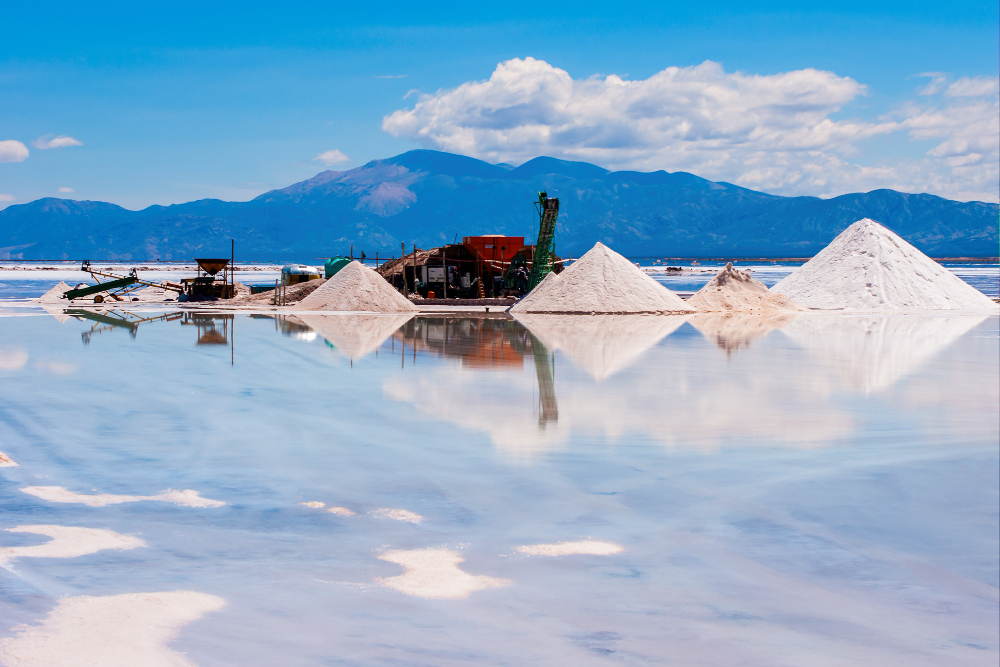
Sustainability Practices
-
Sustainability Practices
Sustainability in Every Grain: Leading Saudi Arabia’s Eco-Friendly Salt Industry
There is a growing demand for ethically and sustainable sea salt production and rightly so. We, as a company, are setting a global benchmark for eco-friendly salt harvesting using high-end techniques like the solar salt evaporation process for green salt manufacturing to achieve a vision of zero waste salt processing.
Companies that use conventional methods are required to use heavy machinery and chemical processing. Plus, a lot of energy is consumed too. All of these issues have become the causes of habitat destruction, pollution, and carbon emissions.
This commitment to zero waste salt processing not only minimizes landfill contributions but also serves as a replicable model for other salt producers who are looking to operate more sustainably.
Harnessing Nature: The Solar Salt Evaporation Process
You may be thinking, What is so unique about us? Well, the main USP of our company’s operations is its solar salt evaporation process. This is a very old but effective technique, in that we have now also integrated it with modern sustainability practices.
In such a method, seawater is directed into large ponds. The location of these ponds is such that they receive direct, intense sunlight for the majority of the day. The result is the pure, mineral-rich salt after evaporation. This process is not only energy-efficient but also fully aligned with renewable energy salt production principles.

So why don’t companies adopt sustainable practices for sea salt refinement?
Unfortunately, natural solar evaporation does not happen quickly. Therefore, many companies often use modern but intensive mechanical processes in order to speed up salt production significantly. The aim of such companies is usually to produce high-volume output, and speed often takes priority over sustainability.

Commitment to Salt Production Sustainability
At the core of the company’s mission is salt production sustainability. Every step of our operations is designed to reduce waste, conserve energy, and protect marine ecosystems. We have built a high-tech closed-loop water system so that seawater used in salt harvesting can be returned to the sea cleaner than before.
To abide by salt production sustainability, Shuaa Alkhaleej also ensures the use of biodegradable packaging, recycling of industrial materials, and integration of artificial intelligence to monitor water quality and salt crystallization rates
Through such practices, the company proudly aligns with the broader vision of Saudi sustainable industries and contributes to the Kingdom’s Vision 2030 goals for environmental leadership.
Eco-Friendly Salt Harvesting With Zero Waste Goals
The company’s eco-innovation doesn’t stop at evaporation. With its zero-discharge facilities and careful land management, we can perform zero-waste salt processing.
During sustainable practices, minerals like gypsum and magnesium can be processed and sold to local industries. This is not the case in traditional operations. Our practices ensure low-impact salt harvesting and resource circularity.
Furthermore, we also keep on conducting training programs for our employees to emphasize eco-friendly salt harvesting methods and environmental awareness. This ensures that our workers understand the value of preserving biodiversity in coastal salt flats.
By adopting a zero waste salt processing model, the firm not only minimizes its environmental footprint but also maximizes economic efficiency — a rare win-win for both nature and commerce.
Conclusion
Mechanical refinement often results in significant carbon emissions, causes water pollution, coupled with significant wastewater discharge. On top of that, the homogenous profile of natural sea salt also gets damaged due to the loss of minerals.
Keeping the above concerns in mind, we are fully dedicated to sustainable sea salt production, with advanced use of the solar salt evaporation process, and a commitment to zero waste salt processing.
To say that we have established ourselves as a leader in eco-friendly salt harvesting and green salt manufacturing wouldn’t be wrong.
In embracing salt production sustainability and operating as a truly environmentally responsible salt company, it sets an inspiring precedent for Saudi sustainable industries and showcases the promise of renewable energy salt production on a global scale. The message is clear: the future of salt is green — and it’s being harvested under the Saudi sun.